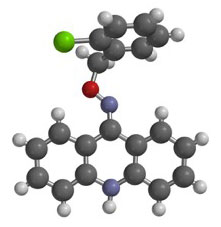A Catalyst for Your Career
UNC’s Chemistry master’s (chemistry emphasis) extends and builds upon the knowledge and skills learned at the undergraduate level and, through the research component, develops independence in the chemical laboratory and in dealing with the chemical literature. Candidates have the opportunity to work closely with faculty trained in biochemistry and in analytical, inorganic, physical and organic chemistry.
Degree Options
Depending on your interests and career goals, you can choose either a thesis or non-thesis option for your master’s degree in chemistry. Both degrees provide you with a rigorous foundation in research, lab skills and academic writing. You’ll have opportunities to publish, present at conferences, conduct independent research and collaborate with faculty and fellow students.
Successful completion of this degree will enhance chances for professional advancement and expand employment opportunities. Further education in a Ph.D. program in chemistry is also a possibility.
Your Future in Chemistry
A master’s degree in chemistry qualifies you for high-level employment in a wide range of industries. You’ll possess specialized expertise that’s highly sought in numerous major industries, including analytical testing, pharmaceuticals, oil and gas, environmental technology and manufacturing.
Consider UNC's M.S. in Chemistry: Chemistry Emphasis if you are:
- Interested in advanced research and learning more about chemistry
- Seeking a collegial environment, with one-on-one mentorship from experienced faculty
- Working toward a career as a researcher, policy maker or industrial scientist
You’ll learn:
- Advanced laboratory techniques
- Laboratory and/or educational research
- Academic writing
- Advanced topics in chemistry
- Hands-on work with modern instrumentation
Sample courses:
- Spectroscopy
- Environmental chemistry
- Toxicology
- Theory of mechanisms and organic reaction
- Organometallics
Beyond the Classroom
UNC has modern, fully equipped chemistry labs that include state-of-the-art instrumentation. Develop high-level skills in nuclear magnetic resonance spectroscopy, x-ray crystallography, mass spectrometry, chromatography, atomic absorption and other advanced techniques.
Where can your degree take you?
- Doctoral program in Chemistry or Biochemistry
- Industrial research and development
- Government or nonprofit agency
- Environmental regulation and research
Current Research in Chemistry
Michael Mosher, Ph.D.
Professor and Chemistry Department Chair
Dr. Mosher’s research projects focus on synthetic organic chemistry, particularly on medicinal chemistry. His current work involves the development of new methods for preparing drugs to treat cancer and type 1 diabetes. Dr. Mosher’s recent investigations have examined the potential for eliminating disadvantages within the 9 aminoacridine class of antitumor agents.

Ready for what's next? Here's what you need to know.
If there's anything else we can do, be sure to connect with us. We're only a shout away.
Still not completely sold? We understand. Here's more information on costs and funding and how to apply.


